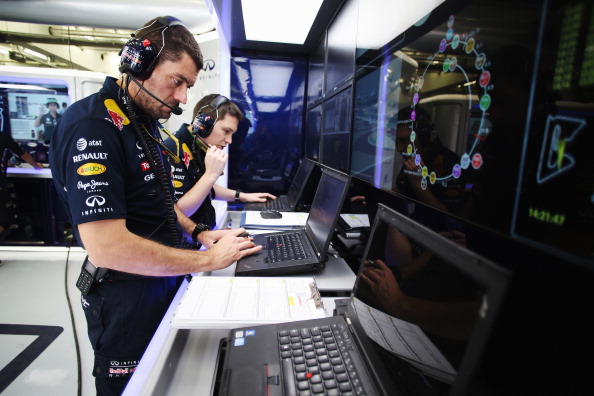
Photo: Mark Thompson
Racing data acquisition is the recording of parameters that allow an engineering team to later analyse the behaviour of the entire car or a specific system. The data analysed can be powertrain-related (engine RPM, oil and water temperatures, oil and fuel pressures and so on), chassis-related (wheel speed, lateral and longitudinal G-forces, dampers displament, suspension loads, etc.) or driver-related (steering wheel angle, throttle position, brake pressure, gear and others). A specific parameter may be related to more than one of these categories. This page is dedicated to gather relevant content related to this subject. Here you will learn:
- The reasons why race teams use data acquisition systems
- How data acquisition systems work
- What the graphs generated by the data acquisition system mean, and how to interpret data
You can read all the articles on Racing Car Dynamics about racing data acquisition and how to use it to improve the behaviour of your car here:
- Data Acquisition: 6 reasons to use and the fundamentals you must know
- The simple secrets to understand how data acquisition works
- How Fast Are You? The Secrets of Speed Data Interpretation
Recommended reading on Racing Data Acquisition
There are many books on racing data acquisition. Some of them can provide lots of helpful information on the matter. In my experience, the books below have shown an incredibly complete analysis of the subject:
- Analysis Techniques for Racecar Data Acquisition, by Jörge Segers
- Competition Car Data Logging, by Simon McBeath
As new articles on this subject are written, I will add them here in an organized manner, for your better experience.
To be informed as soon as I post, please subscribe to our e-mail list below.
 KEEP UP TO DATE
KEEP UP TO DATE